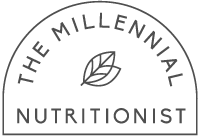Do I Need to Take Creatine for Weight Loss?
Written by: Hannah Abdulla, BS Nutrition
Creatine is a non-essential amino acid located primarily in our muscles. Non-essential means we generally do not need supplementation, as our body makes creatine naturally in the liver, pancreas and kidneys. With that said, we do get some creatine through our diet when we consume seafood and red meats.
Creatine was initially discovered in the body in the 1800s. In the mid 1990s creatine supplementation gained popularity amongst athletes as a natural and tasteless sports enhancing dietary supplement. It has since become one of the most widely used nutrition supplements among recreational, collegiate and professional athletes. The creatine in our body is stored and used as an energy source for our muscles during physical activity. The purpose of creatine supplementation is to increase phosphocreatine (the stored form of creatine) in the muscle with the intention of postponing muscle fatigue.
Mechanism of action
While exercise is highly beneficial to our bodies and overall health, over-exercising produces reactive oxygen species (commonly referred to as free radicals). Our bodies produce reactive oxygen species on a daily basis through regular metabolic functions. However, the production of excessive reactive oxygen species can impair the muscle’s ability to contract and potentially cause oxidative stress-related tissue damage.
Researchers continue to learn the precise mechanisms by which creatine works in the body to improve physical performance. According to a review published in the National Library of Medicine it is thought creatine has the capability to increase antioxidant enzyme activity which may decrease reactive oxygen species allowing for better performance.
Side effects
Creatine is generally recognized as safe in the context of its intended use. The most common side effect of consuming creatine supplements is weight gain attributed to water retention. Additionally, there is limited research suggesting creatine supplements should not be utilized by those with preexisting kidney conditions. Please remember to consult your doctor prior to considering creatine supplementation.
Is it FDA approved?
Creatine monohydrate is in the Food and Drug Administrations Generally Recognized as Safe (GRAS) database. This means the FDA has determined creatine as a safe product under the conditions of its intended use and no other use. With that said, the FDA does not regulate nutrition supplements.
Pricing
Pricing varies based on form and brand, but typically ranges from approximately $10-80.00, with a median of $30-40 per bottle.
Breakdown of ingredients
A creatine supplement will generally only have creatine monohydrate in it. This is simply creatine with a water molecule attached to it for the purpose of facilitating absorption. Depending on the brand of supplement, you may find additional ingredients on the label such as the ingredients used to make the capsule if you purchase capsule form. You may also find added sugars on the ingredient label if you purchase creatine in the form of a gummy supplement.
Does it actually work?
Unless you are a bodybuilder or powerlifter, you likely do not need a creatine supplement. As mentioned, your body makes all the creatine you need. Through a healthy and balanced diet you will likely be consuming creatine, as well. Prior to consuming nutrition supplements or making diet modifications, be sure to consult a registered dietitian to ensure you are making the safest decisions for your body.
Overall, most nutrition experts do not advise supplementation (assuming one is medically healthy). Through adequate nutrition, exercise and the support of a registered dietitian the journey to a healthy lifestyle can be achieved without supplementation.



